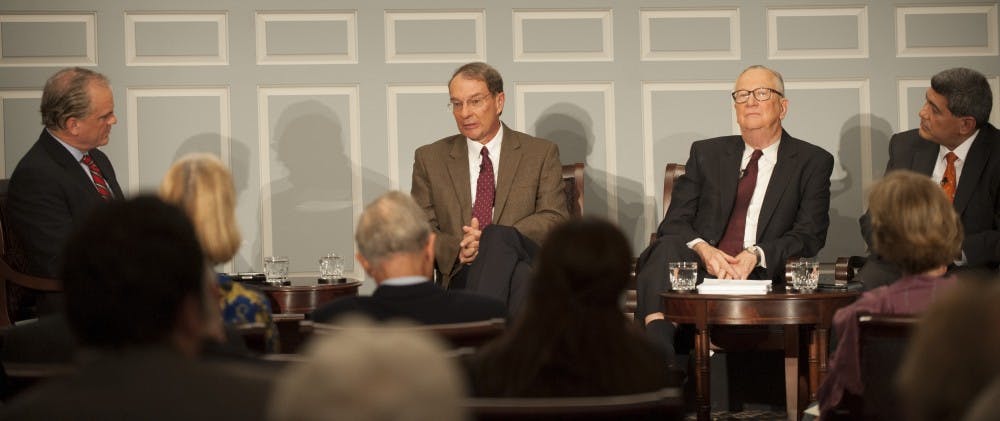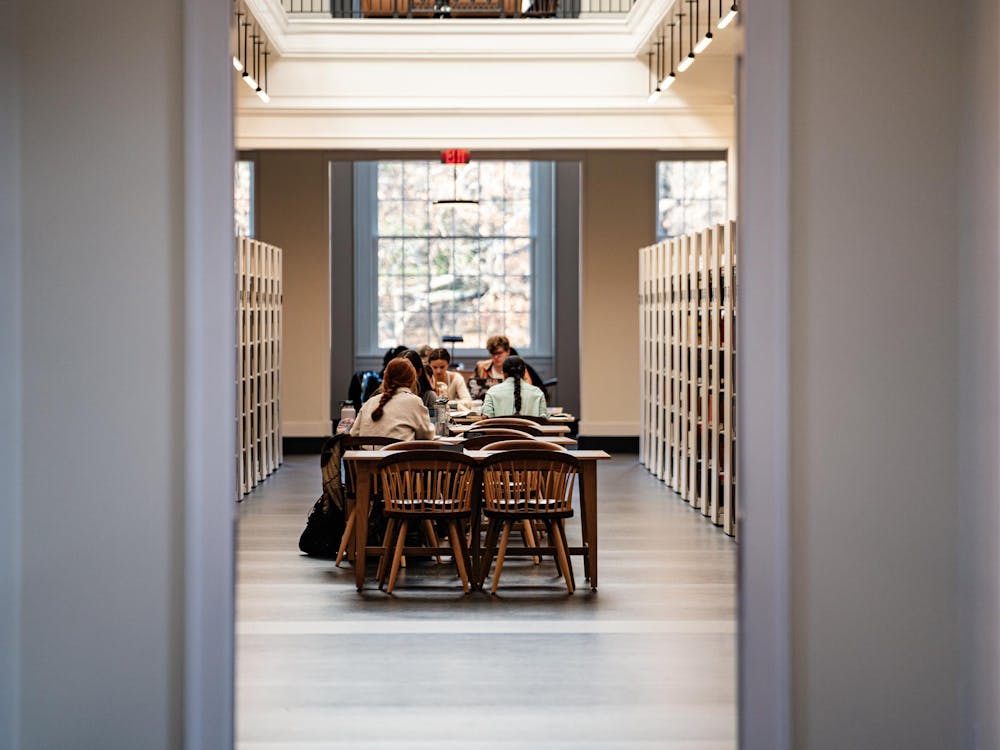The Miller Center hosted a forum on President John F. Kennedy’s foreign policy in Latin America on Monday in light of the upcoming 50-year anniversary of the Kennedy assassination.
The forum was broken up into three panels, each discussing separate aspects of Kennedy’s diplomacy with Latin America during his time as president and how his foreign policies apply to political controversies today.
The first panel focused on Kennedy’s Alliance for Progress, a program founded in 1961 to establish economic cooperation between the United States and Latin America. Speakers included Steve Rabe, history professor at the University of Texas at Dallas; Howard Wiarda, professor of international relations at the University of Georgia; and Arturo Condo, president of INCAE Business School in Latin America.
“The Alliance for Progress is extremely successful — if you measure it [in] that it was essentially an anti-communist policy and that President Kennedy and Johnson found it unacceptable that there would be a communist regime [in Latin American countries,]” Rabe said.
Wiarda also noted the applicability of Kennedy’s policies to current foreign affairs.
“Of course we prefer decent democratic regimes, but we cannot get rid of authoritarian regimes until we’re sure that something even worse … is not going to be the result of our getting rid of authoritarian regimes,” Wiarda said, quoting Kennedy. “I wish we had thought in Kennedy-like terms when we intervened in Egypt or Libya.”
The second panel was moderated by CNN reporter Evan Perez, who discussed political stability and the prosperity of democracy amid violence in Central America. Other speakers included Ambassador Muni Figueres, Costa Rican Ambassador to the United States; Ambassador Mario Jaramillo, Panamanian Ambassador to the United States; and Ambassador Rubén Zamora, El Salvadorian Ambassador to the United States.
Panelists also discussed the War on Drugs and how the United States’ approach to the situation affects current relations with Central America.
“The problem in Central America is really demand presence, and the demand is fueled here [in the United States],” Figueres added. “It’s a huge and complex problem, that we understand perfectly. If only the drug market here were regulated or brought into some kind of component of the formal economy, so that it could actually be controlled … that would help us a great deal to improve our situation.”
The final panel, moderated by CNBC’s Michelle Caruso-Cabrera, discussed the future of U.S. trade relations in light of Central American economic development. Speakers included Anabel González, minister of foreign trade of Costa Rica; Juan Carlos Paiz, Guatemala’s presidential commissioner for competitiveness, investment and millennium challenge corporation; and Hugo Martinez, secretary general of SICA (Sistema de la Integración Centroamericana).





